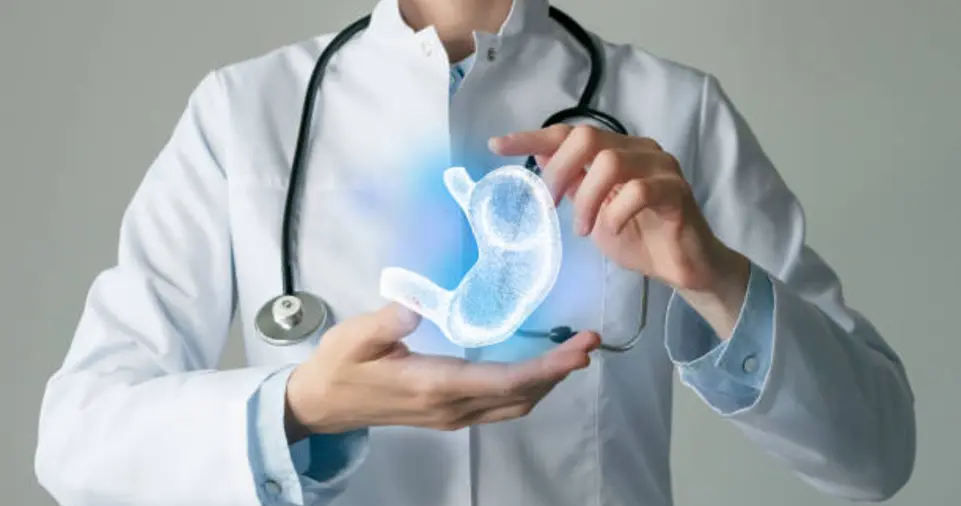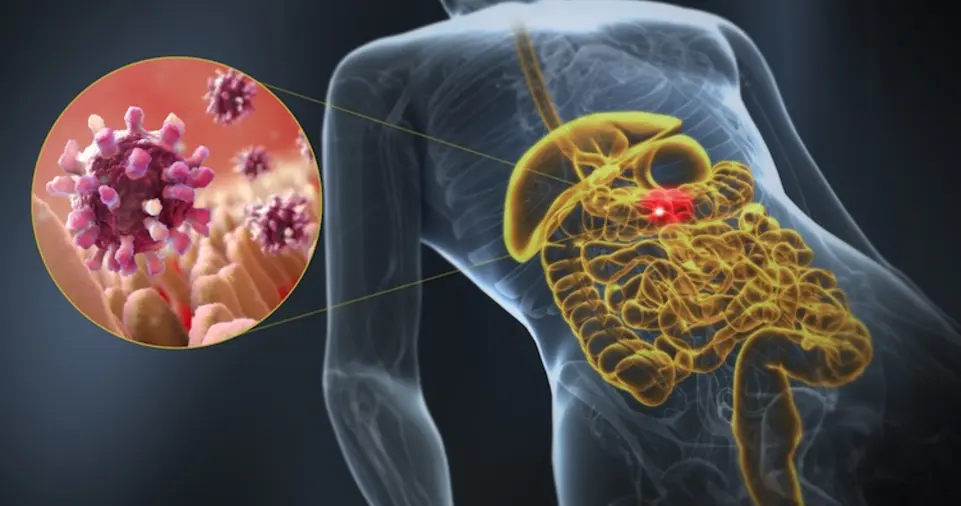Gastroenteritis is an illness that causes inflammation in the stomach and intestines, leading to symptoms like diarrhea, vomiting, and abdominal pain.
Typically triggered by viruses, bacteria, or parasites, gastroenteritis spreads through contaminated food, water, or close contact with infected individuals.
While most cases are mild and resolve on their own, the condition can lead to severe dehydration if not managed properly.
This article outlines the key causes, symptoms, diagnosis, and treatment options for gastroenteritis, as well as practical steps to prevent infection and protect your health.
What is Gastroenteritis?
Gastroenteritis, often referred to as the “stomach flu,” is a condition that causes irritation and inflammation of the stomach and intestines.
This illness can result from various infections, including viral, bacterial, and parasitic agents, as well as toxins, chemicals, and certain medications.
While the illness is common and usually temporary, understanding its causes, symptoms, and treatment options can help prevent complications and promote a swift recovery.
Key Symptoms of Gastroenteritis
Gastroenteritis symptoms usually begin with a feeling of discomfort in the stomach, progressing to more specific symptoms such as:
- Loss of Appetite: Reduced desire to eat is common due to nausea and stomach discomfort.
- Bloating and Nausea: A feeling of fullness or queasiness is typical as the digestive system is inflamed.
- Vomiting and Diarrhea: These are the body’s way of expelling the infection but can lead to dehydration if not managed.
- Abdominal Cramps and Pain: Stomach muscles may contract, causing pain.
- Bloody or Mucus-filled Stools: In severe cases, stools may contain blood or mucus.
- General Lethargy and Body Aches: Feeling weak, fatigued, and experiencing mild body pain can accompany other symptoms.
Common Causes of Gastroenteritis

Gastroenteritis can develop due to multiple sources of infection. Here are some of the main causes:
Viral Causes
Viruses are the leading cause of gastroenteritis. Common viral strains include:
- Norovirus: Known for causing outbreaks in close-contact settings like schools or cruise ships.
- Rotavirus: A common cause of gastroenteritis in young children, often spread through contaminated hands and surfaces.
- Adenovirus: Can cause symptoms in both children and adults and is spread through direct contact with infected persons.
Bacterial Causes
Certain bacteria are also responsible for gastroenteritis, including:
- Escherichia coli (E. coli): Often found in contaminated water or raw fruits and vegetables, especially in areas with poor sanitation.
- Salmonella: Typically found in undercooked meat or eggs and can spread through contact with infected animals.
- Campylobacter: Found in animal feces and uncooked poultry, this bacterium can cause severe gastrointestinal distress.
Parasitic Causes
Parasites can cause gastroenteritis, usually by contaminating water or food. Common parasites include:
- Giardia lamblia: Often contracted from untreated water sources, this parasite can lead to prolonged stomach issues.
- Cryptosporidium: This parasite can spread through swimming pools and other water sources.
- Entamoeba histolytica: Found in contaminated water or food, it can cause severe abdominal cramps and diarrhea.
Other Causes
Additional factors that can lead to gastroenteritis include:
- Bacterial Toxins: Some bacteria release toxins that, even in the absence of bacteria, can cause gastrointestinal distress. Staphylococcal bacteria, for example, can produce such toxins.
- Chemicals and Poisoning: Exposure to certain chemicals, such as lead, can trigger gastroenteritis symptoms.
- Medications: Antibiotics and other drugs can disrupt normal gut bacteria, leading to gastrointestinal upset.
Types of Infectious Gastroenteritis
Infectious gastroenteritis can spread quickly through contaminated food, water, or direct contact with an infected person. Here are the most common types:
E. coli Infection
A frequent concern for travelers, E. coli infection arises from consuming contaminated water or raw produce. It’s especially common in areas where sanitation practices are limited.
Salmonella and Campylobacter Infections
Both of these bacteria are commonly found in animal feces. Ingesting contaminated food, such as undercooked poultry or eggs, or handling infected animals without proper hygiene can lead to gastroenteritis.
Viral Gastroenteritis
Viral gastroenteritis can spread rapidly, especially in close-contact settings. The infection often occurs through direct contact with contaminated hands or objects or by ingesting contaminated food or water.
Giardia and Cryptosporidium Infections
These parasitic infections usually spread through contaminated water, often affecting people who swim in or drink from infected water sources.
ALSO READ: Aiotechnical.Com: An Ultimate Aiotechnical.Com Computer Guide
Diagnosing Gastroenteritis

Accurate diagnosis is essential, as treatment varies based on the cause of gastroenteritis. Here’s how healthcare providers typically diagnose the condition:
Medical History and Physical Examination
A doctor will start by reviewing symptoms and recent activities, such as travel history or exposure to potentially contaminated food.
A physical examination helps identify signs like dehydration or abdominal tenderness.
Laboratory Tests
Lab tests may be performed to identify the specific cause of gastroenteritis:
- Blood Tests: Used to check for dehydration or infection.
- Stool Tests: Helps detect viruses, bacteria, or parasites present in the digestive system.
Treatment Options for Gastroenteritis
Most cases of gastroenteritis are mild and can be treated at home. Here’s a breakdown of standard treatments based on severity:
| Treatment Type | Purpose | Conditions Treated |
|---|---|---|
| Oral Rehydration | Replenishes lost fluids and electrolytes | Mild to moderate dehydration |
| Intravenous (IV) Fluids | Administered for severe dehydration | Severe cases of vomiting or diarrhea |
| Antibiotics | Used if a bacterial infection is confirmed | Bacterial gastroenteritis, such as E. coli or Salmonella |
| Anti-parasitic Medications | Targets parasitic infections | Parasitic gastroenteritis, such as giardiasis |
| Rest and Hydration | Helps the body recover naturally | Viral gastroenteritis, which often clears on its own |
Note: Avoid using anti-vomiting or anti-diarrhea medications without medical advice, as these can prolong infection by keeping harmful agents inside the body.
Preventing Gastroenteritis
Preventing gastroenteritis involves adopting hygiene and safe food-handling practices. Follow these practical tips to reduce the risk of infection:
Personal Hygiene
- Wash Hands Frequently: Regularly washing hands with soap and water, especially after using the restroom or before handling food, is essential.
- Avoid Sharing Personal Items: Avoid sharing utensils, towels, or other personal items that may carry infectious agents.
Food Safety Practices
- Cook Food Thoroughly: Ensure meats, especially poultry, are cooked thoroughly to kill harmful bacteria.
- Use Separate Cutting Boards: Designate specific cutting boards for raw meat and other foods to prevent cross-contamination.
Water Safety
- Drink Safe Water: When traveling, especially to areas with uncertain sanitation, stick to bottled water for drinking and brushing teeth.
- Avoid Ice in Drinks: Ice may be made from contaminated water, so avoid it in places where water quality is questionable.
Real-Life Tips for Managing Gastroenteritis
When to Seek Medical Help
While mild cases resolve with home care, consult a healthcare provider if symptoms persist for more than a few days or if severe symptoms, like high fever, dehydration, or bloody stools, occur.
Hydration Tips
To manage dehydration, keep oral rehydration solutions on hand, especially for children or the elderly who are more vulnerable to dehydration.
Hygiene During Recovery
Infection can remain in your system even after symptoms disappear. Continue practicing good hygiene to prevent spreading the infection to others.
ALSO READ: Minecraft (2009) Game Icons Banners: A Journey Through Creativity and Identity
Conclusion
Gastroenteritis is a common but preventable illness that primarily impacts the digestive system.
With its symptoms ranging from mild discomfort to severe dehydration, prompt and proper treatment can significantly reduce complications.
By following simple hygiene practices, ensuring safe food handling, and staying cautious during travel, you can minimize the risk of contracting or spreading gastroenteritis.




